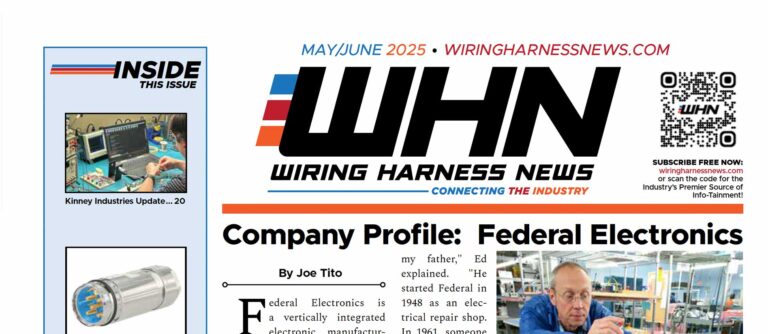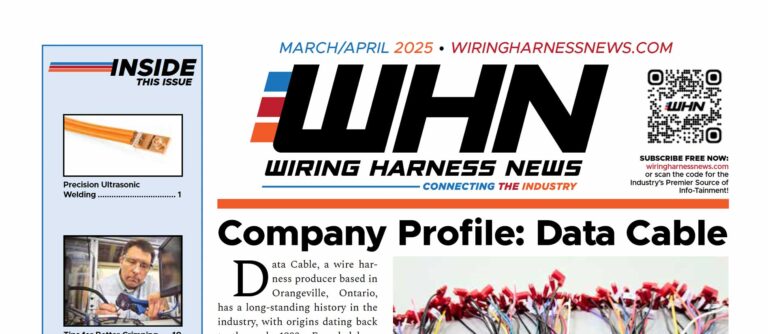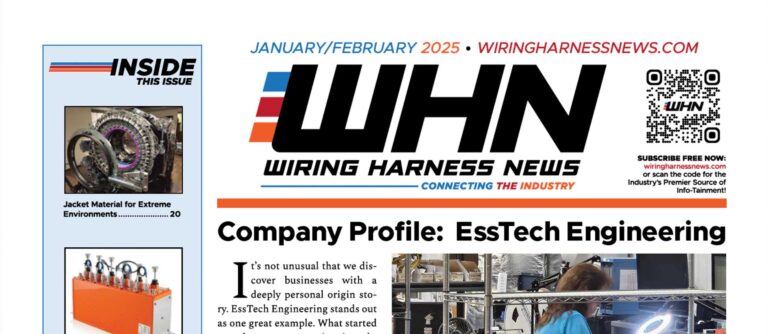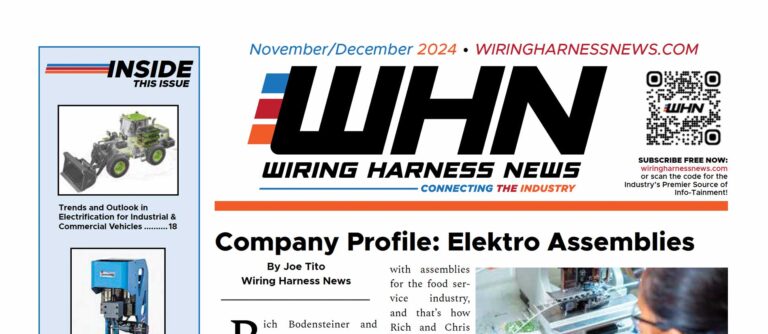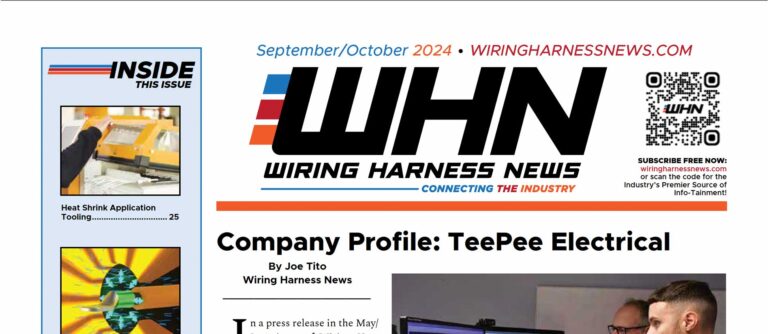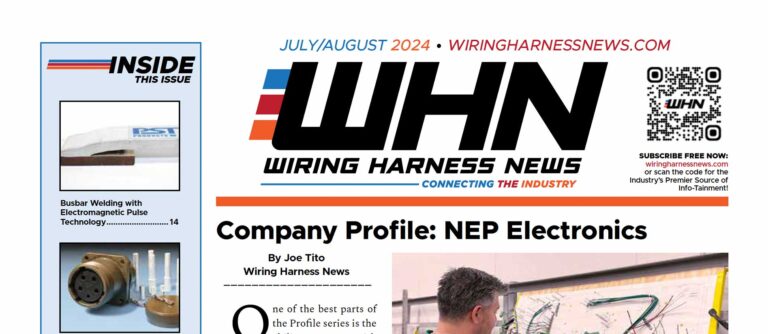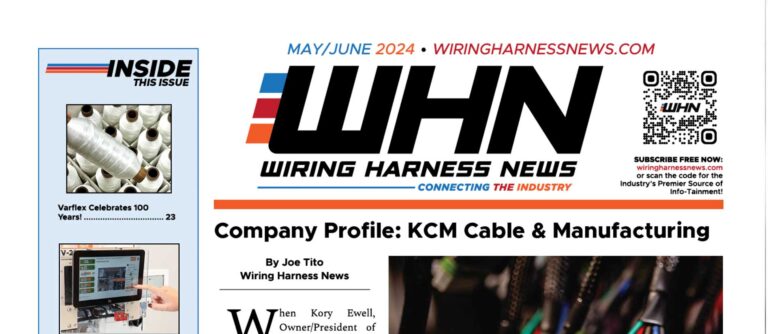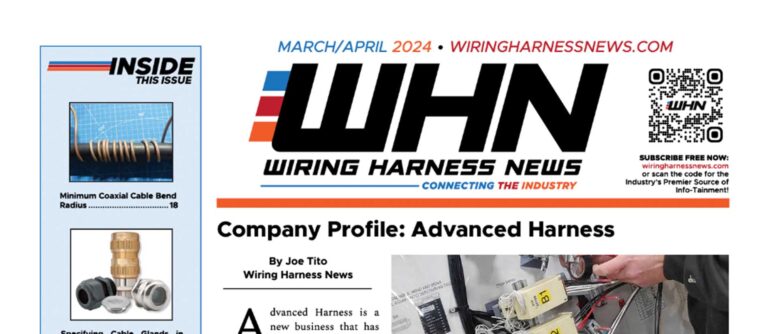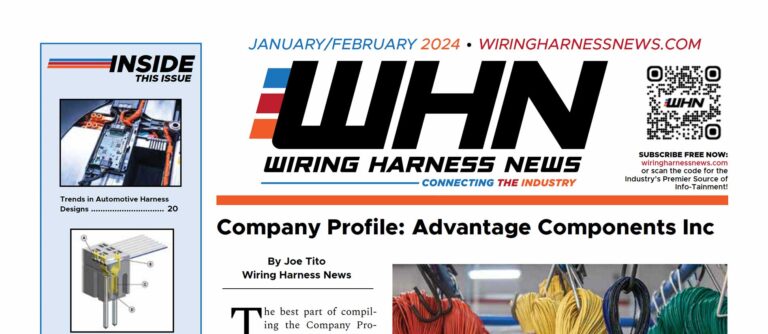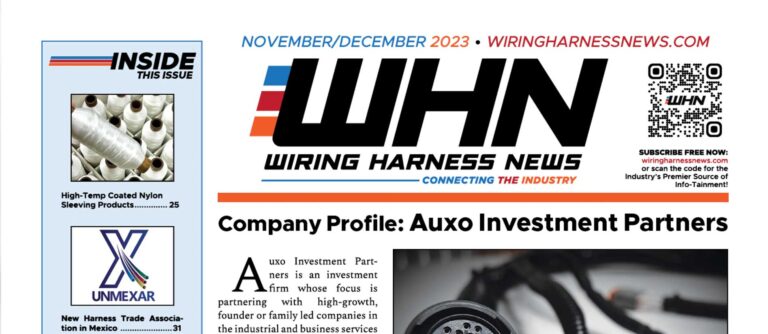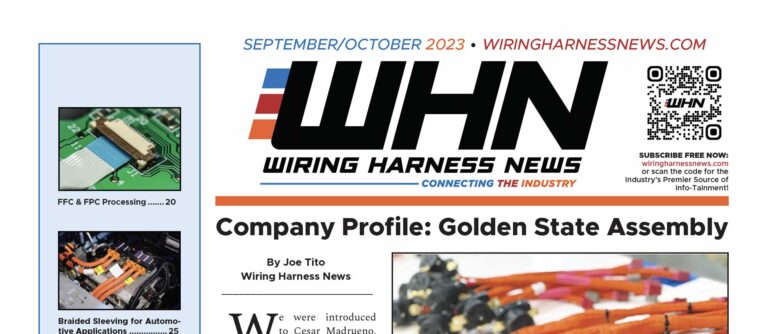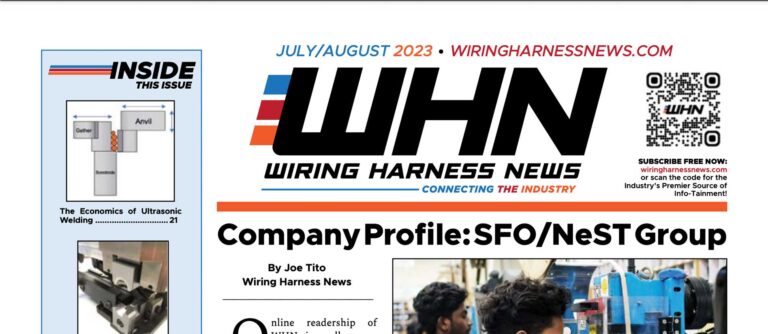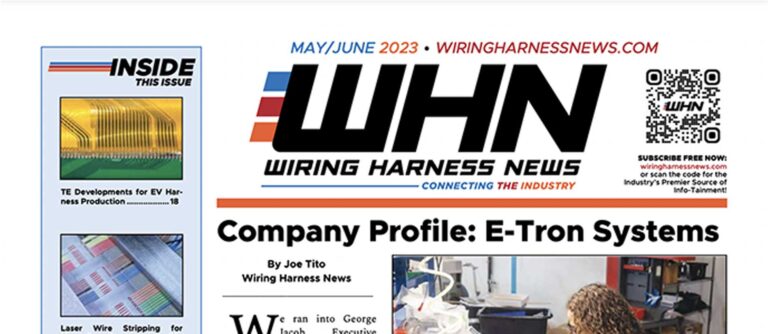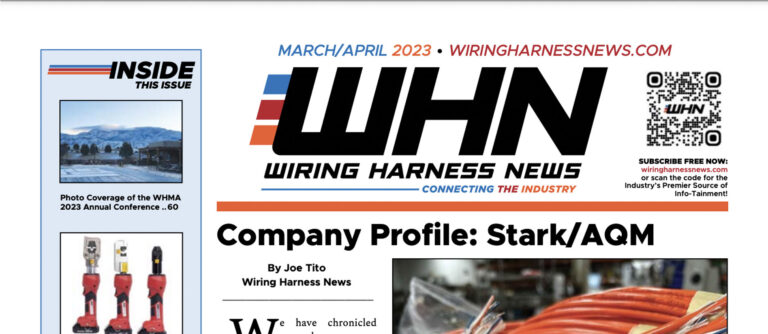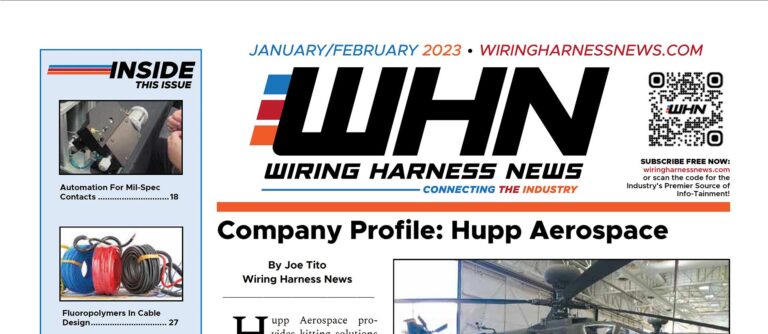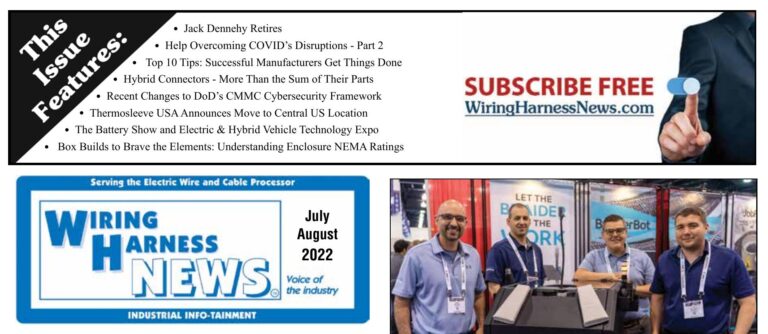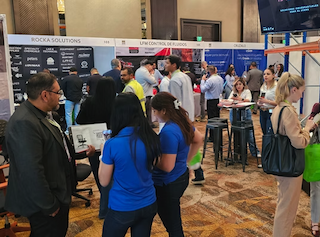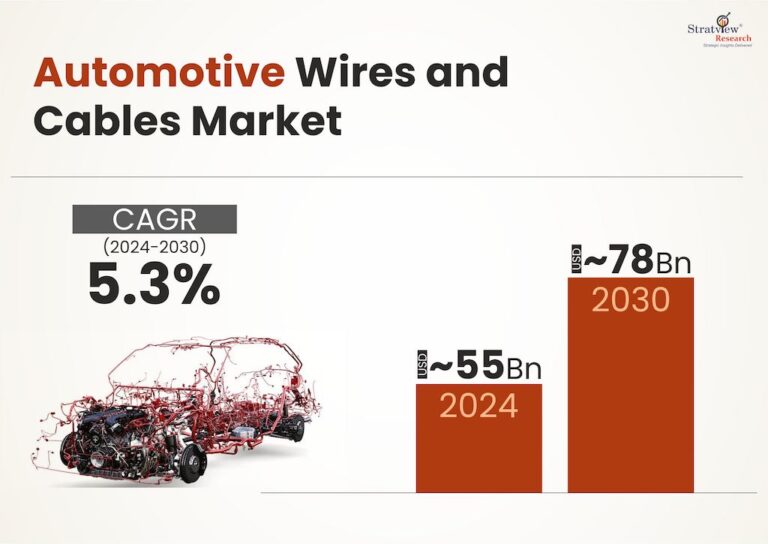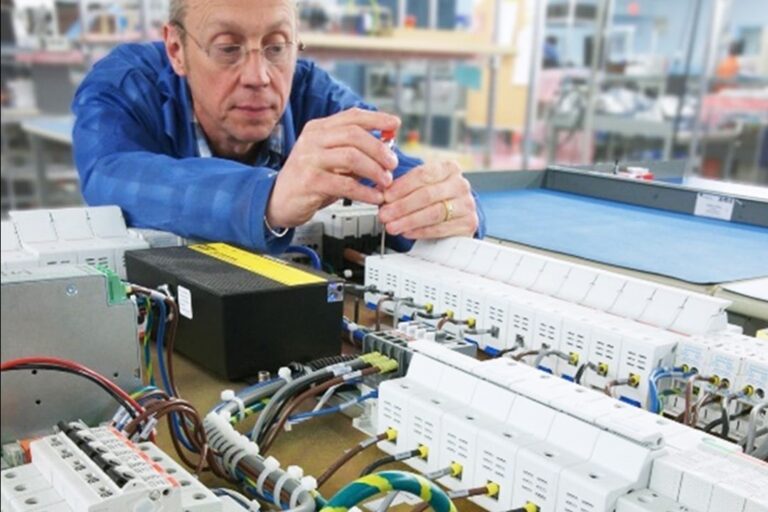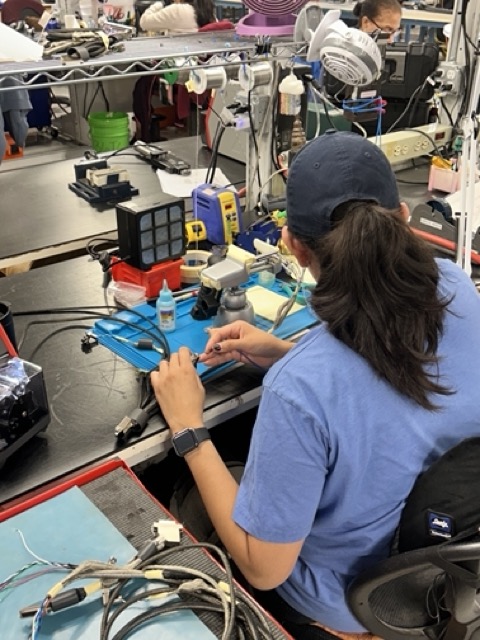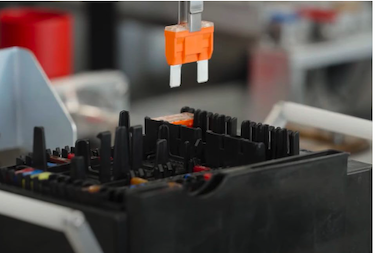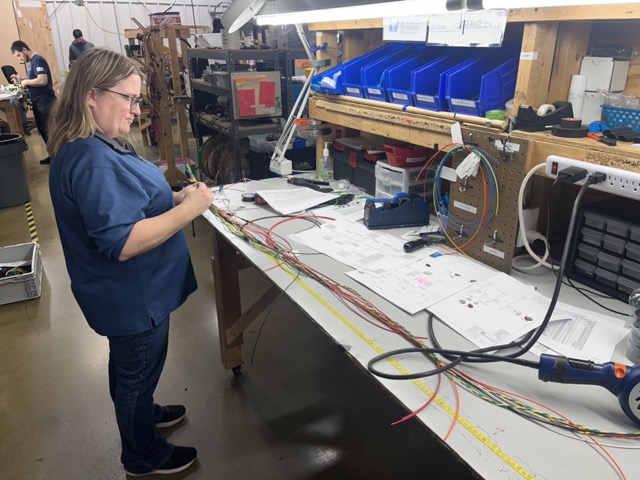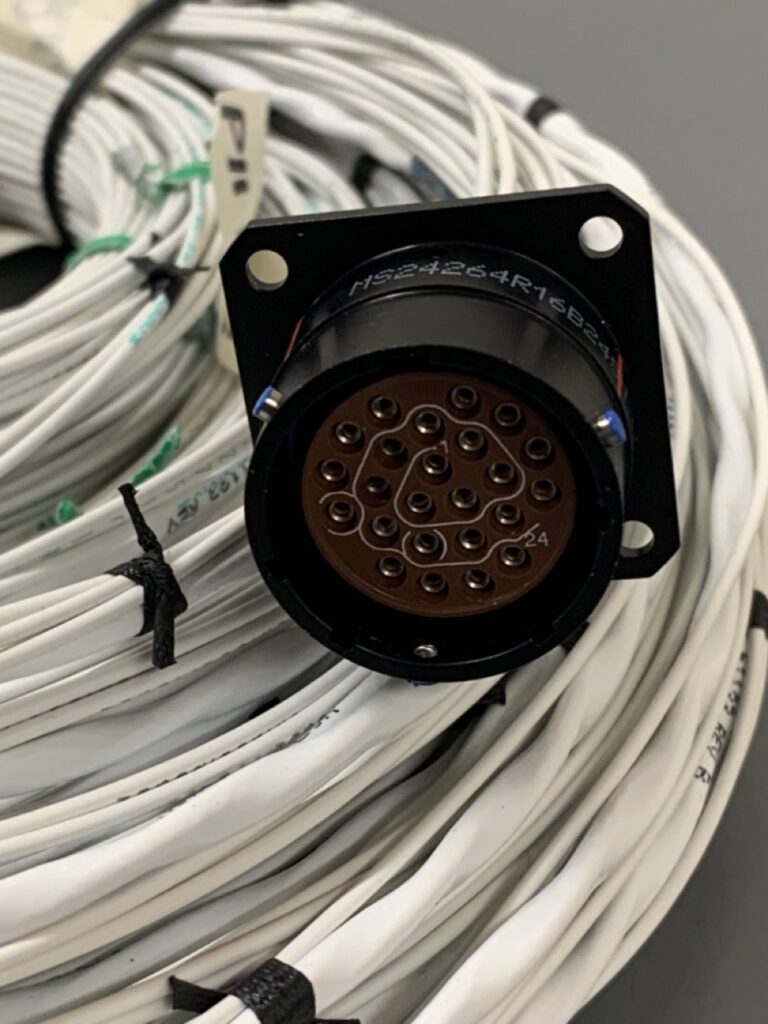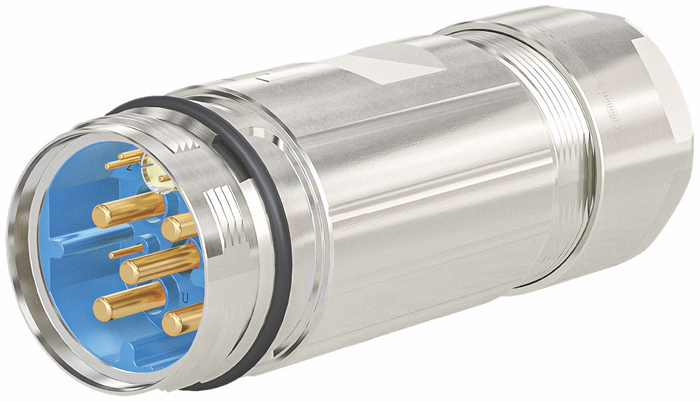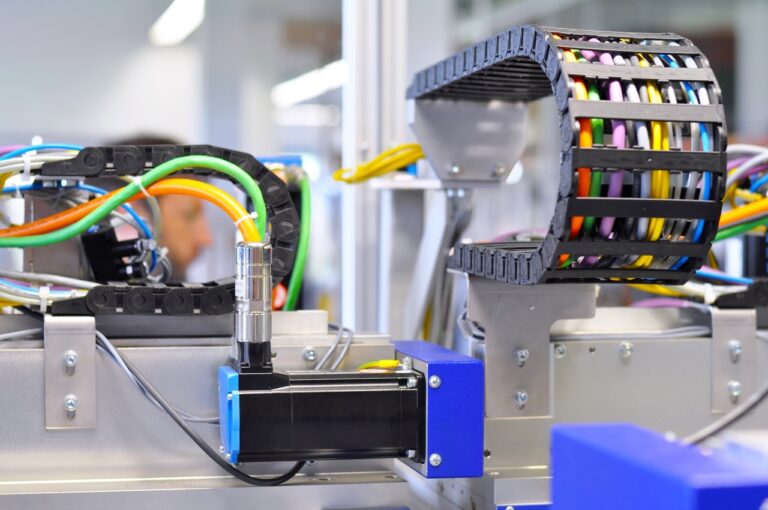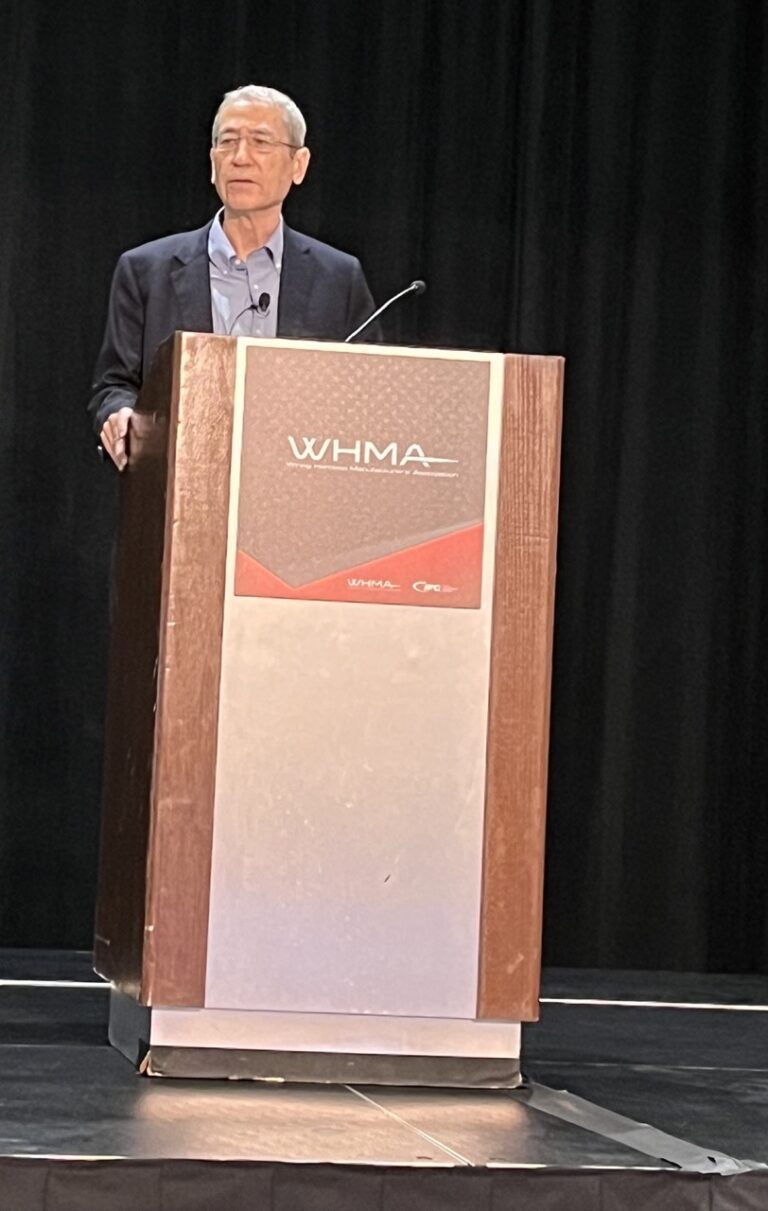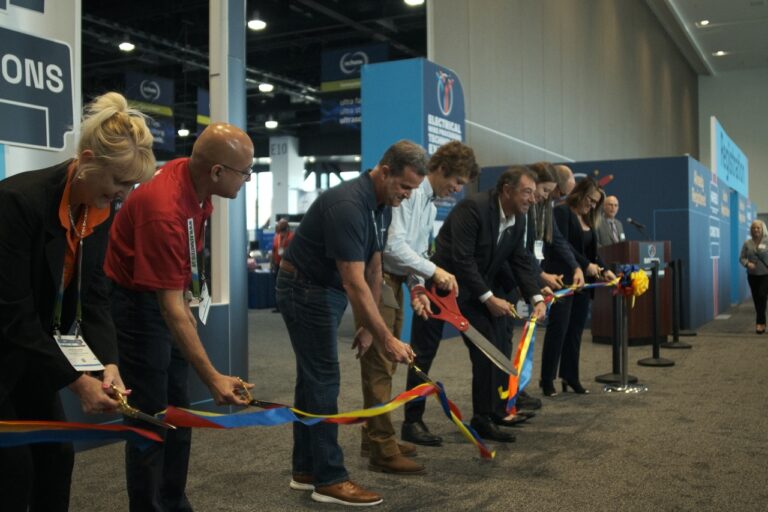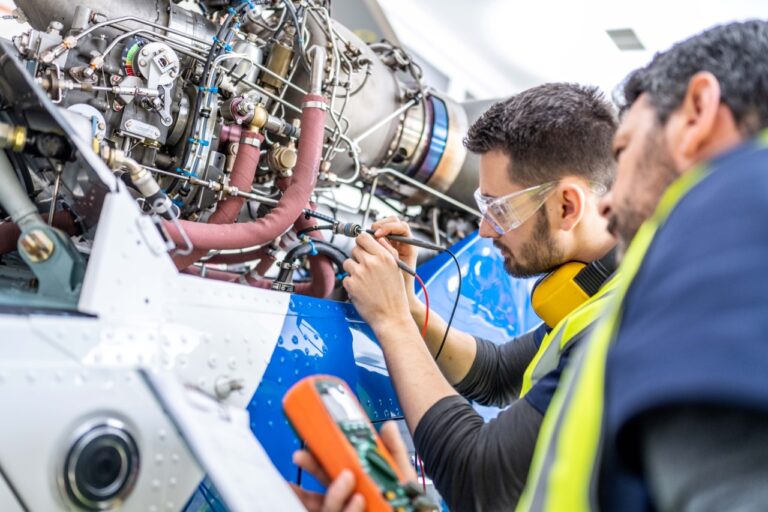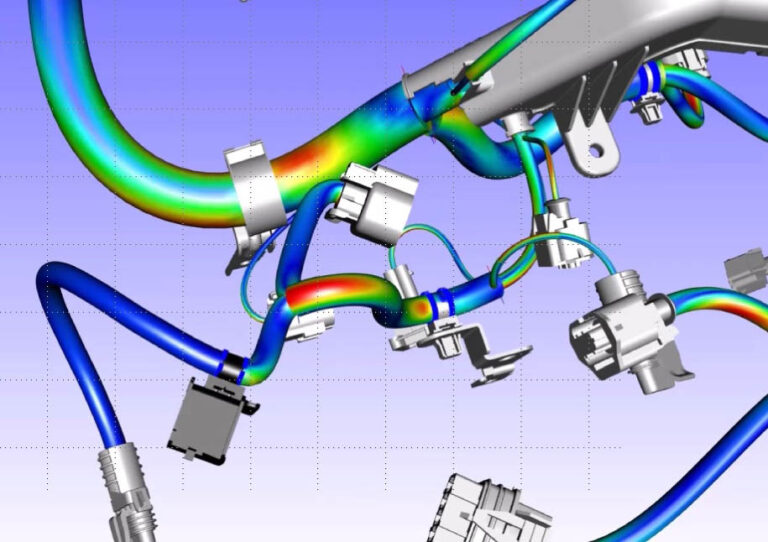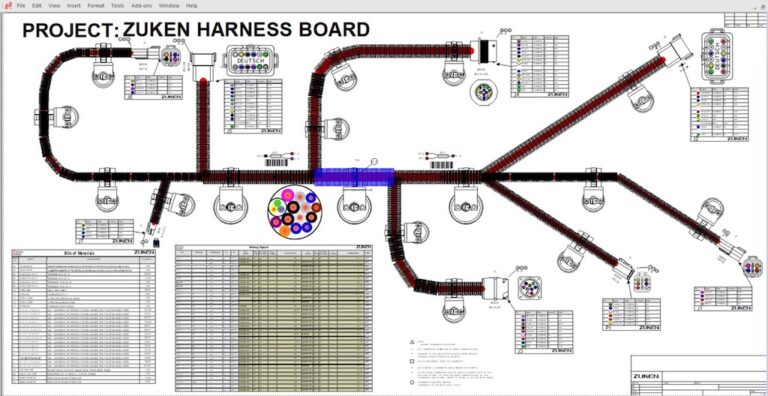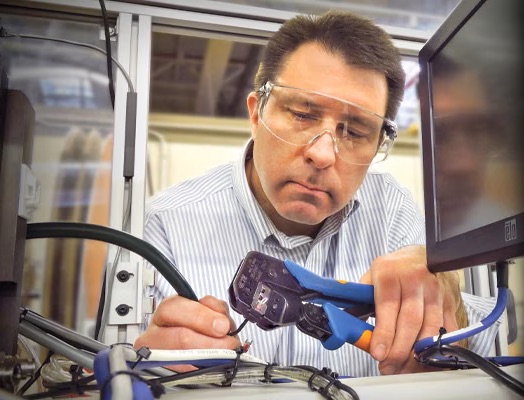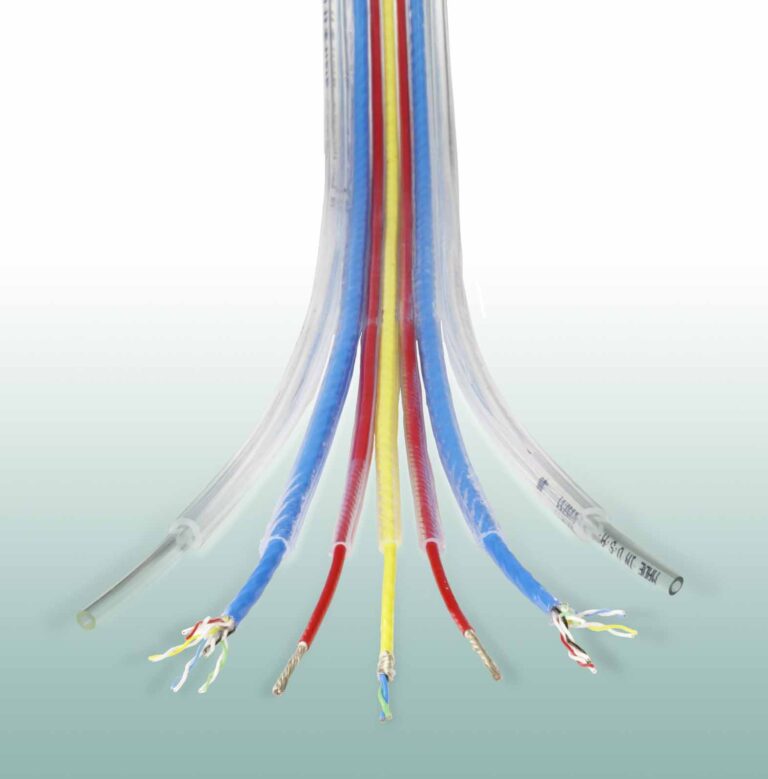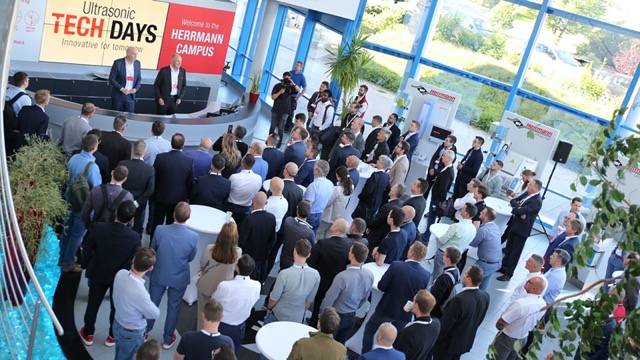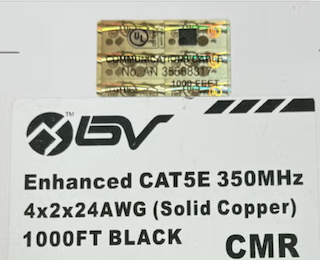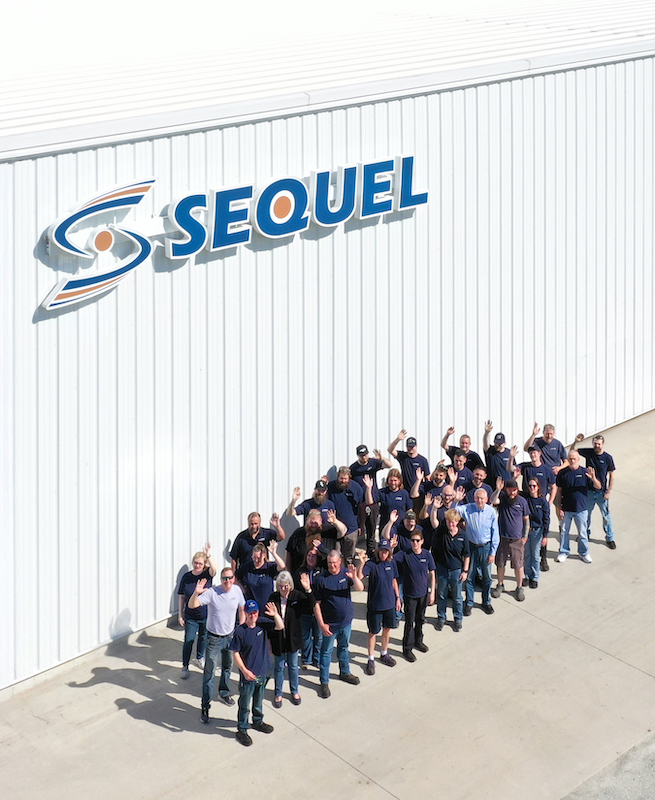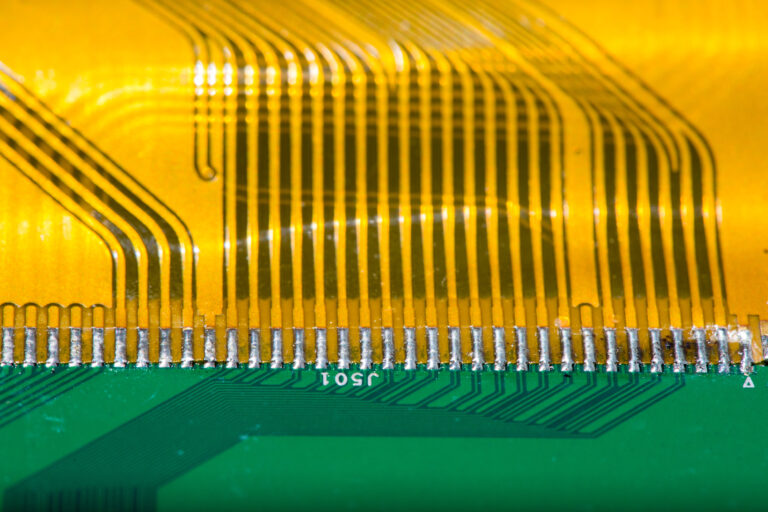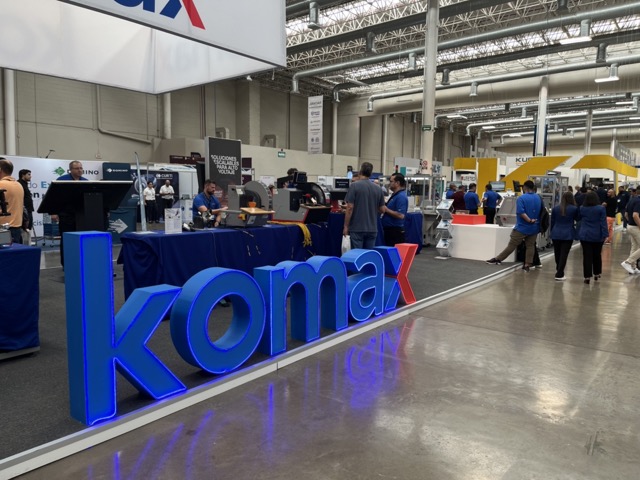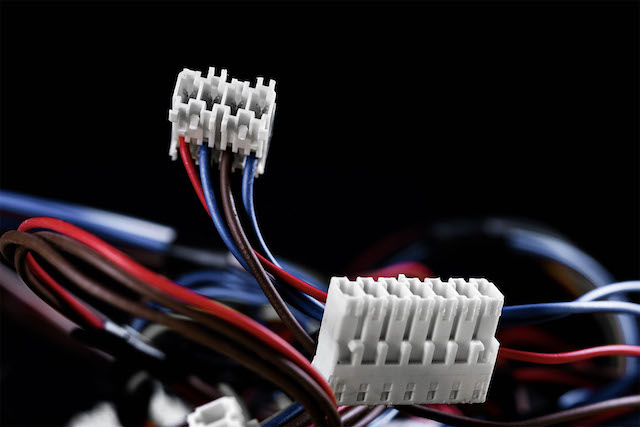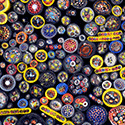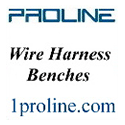Wire harnesses in cars are often compared to the human body’s circulatory and nervous systems: Both are responsible for transmitting critical energy, signals and information. Utilizing 5G, AI, and IoT technologies, tomorrow’s electric vehicles (EVs) and autonomous vehicles will send more signals, process more data, and make more decisions, than ever before. The average car features more than seven hundred connector assemblies that support thousands of individual terminals and this number is expected to increase to over one thousand connectors in the next few years with the addition of these new technologies. This poses OEMs with a new set of engineering challenges and added risk as a new potential point for failure arises with each additional connector added to a vehicle.
In EVs, high-current connectors are required to transfer power from the battery to the motor. Charging station plugs are another example where the reliability of high-current connectors are crucial to the operation of hybrid vehicles and EVs. When it comes to EVs and increasing autonomy levels from advanced driver-assistance systems (ADAS) to full autonomy, these failures can result in much bigger issues than just a quiet radio. Traditional mechanical and hydraulic systems are being replaced with electronically controlled systems like brake-by-wire and steer-by-wire technology. Connectors also play a critical role in transmitting a wide range of electronic data and control signals that are required for safety features like pedestrian detection, lane departure warning, automatic emergency braking, and blind spot detection – all of which must operate without a hitch.
The failure of wire harnesses in EVs can pose safety issues, increase recall and warranty costs, negatively affect technology adoption, and impact brand reputation. Therefore, preventing connector failure should be a top priority for design engineers. Corrosion, fretting, water intrusion and high insertion force are all factors that can lead to connector failure. Luckily, all these issues can be prevented with specialty connector lubricants.
Protect Against Corrosion
The automotive environment challenges even the highest quality connector. Corrosion protection will become even more important as EVs and their components often get higher usage and are expected to last longer than vehicles with traditional internal combustion engines.
Many connectors in EVs must survive heating and cooling cycles as well as water, road spray, and road grit. Power mirrors, door locks, and other external systems are exposed to rain, snow, and car wash detergent solutions. High levels of humidity can also threaten connector performance between door panels.
All of these conditions are catalysts for oxidation and corrosion, which create resistive oxides and in turn result in intermittent faults or electrical failure. Connector grease acts as a seal to protect connectors against water, dirt, and other corrosive elements that can lead to power failure. For automotive assemblies, a connector grease with good water washout and salt spray properties are recommended.
Reduce Insertion Force
When a thin layer of grease is applied to a connector, it reduces friction between the connectors which eases mating. If mating force is reduced, it puts less physical strain on assembly workers — keeping the manual assembly force within the legal limits set by OSHA and reducing the risk of work injuries such as carpal tunnel syndrome that may occur when repeatedly mating connectors with high force. Insertion force isn’t just a problem on the assembly line, high insertion force can also negatively impact the quality of connections. Even though most connectors have a locking mechanism, high insertion force can prevent proper mating, resulting in increased electrical resistance or a separated connector. A properly selected lubricant lowers insertion force by decreasing the coefficient of friction between mating surfaces. It reduces mechanical wear by placing a film of oil between the mating surfaces. Lower insertion force ensures solid connections and reduces the physical strain on assembly line workers, which can reduce worker compensation claims.
Prevent Fretting
One of the most common reasons for electric connector failure is fretting corrosion – when electrical terminals and contacts become worn after exposure to micromotions from vibration and / or thermal expansion caused by heating or cooling cycles. Throughout the vehicle, connectors are subject to vibration from the road surface, engine, drive train, suspension system, and other related components. Micromovements wear through metal plating into the base metal that then oxidize, eventually creating an open connection and ultimately, power failure or signal loss. As this oxide layer builds up, it acts as an insulator between the contacts, increases the electrical resistance and voltage drop across the terminal and may eventually result in an open circuit and total loss of connection and conductivity. Fretting corrosion has been reported on some of the most popular connectors used today for ADAS, including FAKRA, USB-A and USB-C connectors.
Sometimes, un-mating and re-mating connectors may solve intermittent power failures. However, unless a connector lubricant is applied, the connector will continue to wear and will eventually oxidize and corrode. Connector grease has two primary benefits. The grease reduces physical wear between the connecting surfaces as they undergo micromotions and fretting wear. This wear reduction preserves the connectors’ layered coatings designed to prevent oxidation and minimize resistance. It also insulates the system from the surrounding environment, preventing insulative oxide layer buildup, which increases resistance and signal loss.
Although connector lubricants are non-conductive, they still allow the microscopic asperities of the contacts to transfer signal and power, while filling in the valleys of the connectors where oxides and wear debris can form. The insulative or dielectric properties are especially important in multi-pin connectors where excess conductive grease could cause a short between the pins (just like water).
Connector Grease in Action: Preventing Thermal Failures
Wire harness issues can have serious consequences. A prominent Automotive OEM had to fix a quality issue with the vehicle headlights after the electrical resistance increased in the connectors of the wire harness powering the headlights. This caused the connectors to overheat and presented a potential fire hazard. To prevent the same issue from occurring, the OEM came to Nye Lubricants in search of a grease that would prevent an increase in connector resistance in their new headlight harness.
Short circuits may occur if connector terminals become corroded, worn, or oxidized. Nye provided the OEM with 25-gram tubes of their industry leading connector grease, NyoGel® 760G. The OEM was pleased with the results and was able to distribute the grease to dealerships around the country.
About Nye Connector Greases
For more than 25 years, OEMs like Ford, General Motors, Navistar, Paccar, and Chrysler have been protecting their contacts with NyoGel® 760G, the universal, industry leading connector grease. NyoGel® 760G is just one product in our complete line of connector greases formulated specifically to address high temperature and high vibration operation. In trucking, automotive, and marine applications, it is particularly important that the lubricant within your assembly can withstand harsh environmental conditions. To address these needs, our connector greases have superior salt spray resistance with little water washout or grease evaporation. With some wire harness assemblies, material compatibility can become an issue as you must ensure that the lubricant will not eat through plastic components. NyoGel® 760G, along with our other connector greases, are resistant to harsh chemicals and are compatible with a wide range of plastics and elastomers.
As a trusted supplier, we work directly with design engineers to form a partnership and assist with the selection of the proper grease to ensure performance even under the most demanding operating conditions, avoid warranty claims, and prevent costly, time-consuming repairs. For applications outside of the automotive industry, we also offer specialty connector greases with low outgassing properties or biocompatibility to meet the unique requirements of wire harnesses in aerospace, semiconductor manufacturing, and medical applications. To accommodate different requirements, Nye offers a variety of grease packages to suit both high-volume production dispensing and small volume manual dispensing. If you would like to learn more about how our connector lubricants can work in your wire harness assembly, please contact Jeff Wheeler at [email protected]

